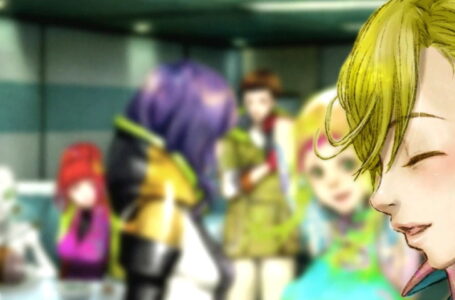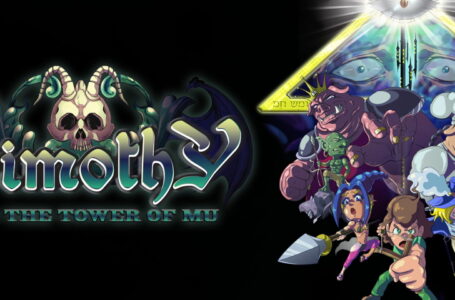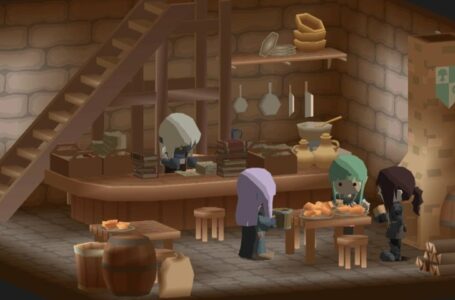Second opinion: Gnosia’s repetitive gameplay holds its interesting story back
Gnosia has been one of those games that I’ve seen hyped up in certain corners of the internet since its release in Japan. It managed to get noticed via its launch on the PlayStation Vita in 2019 — the same year Sony discontinued production of the console — and gained traction through word of mouth and positive reviews.
Last December’s news of an English release for Gnosia’s Switch port meant that I would finally be able to try the game for myself. All I really knew about the game was that it featured short rounds of Mafia/Werewolf style gameplay against AI, and there was an overarching story making use of loops, in a similar vein to Raging Loop. It turns out that the former of those, while being a unique part of Gnosia, is actually the game’s greatest weakness, dragging out what would have otherwise been an enjoyable short story.
This review is based on the Nintendo Switch version of Gnosia (the only version available in English). A review key was provided by Playism for the purpose of this review. Gnosia is currently available digitally via the Nintendo eShop. For an alternative perspective on Gnosia, please see Lilia’s thoughts on the game!
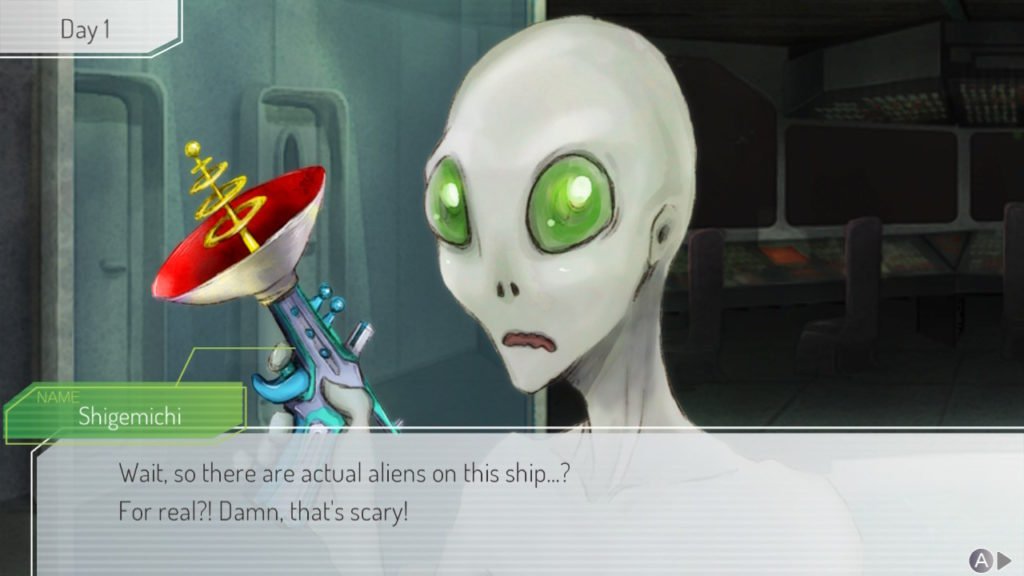
The game is set on a spaceship dealing with the threat of the titular Gnosia, beings that take the appearance of humans to hunt down any other survivors. Playing as an amnesiac crewmember, you must find the Gnosia and put them into cold sleep — or do the same to humans if you happen to be a Gnosia yourself.
The game takes the form of virtual discussions over multiple in-game days, where characters debate to decide who is the most suspicious. This continues each day until all Gnosia have been dealt with, or their numbers are equal to the amount of remaining crewmates. Whether you succeed or fail, a new loop is started, mixing up the crew and their roles again.
These rounds of deduction are where you spend most of your time in Gnosia. As it’s a single-player game, instead of actual players, you’ll be debating with various characters that have found their way aboard this ship. Depending on the setup, there’ll be up to 14 other characters, with varying amounts of Gnosia and other roles thrown into the mix.
By using commands, you can theoretically manipulate the decisions both allies and enemies make. For example, by doubting certain characters, you could pass suspicion onto them, or use small talk to make yourself seem less of a threat to the Gnosia. Roles such as the engineer can be used to discover whether a person is safe or not, though it’s possible for Gnosia to lie and claim a role they don’t have.
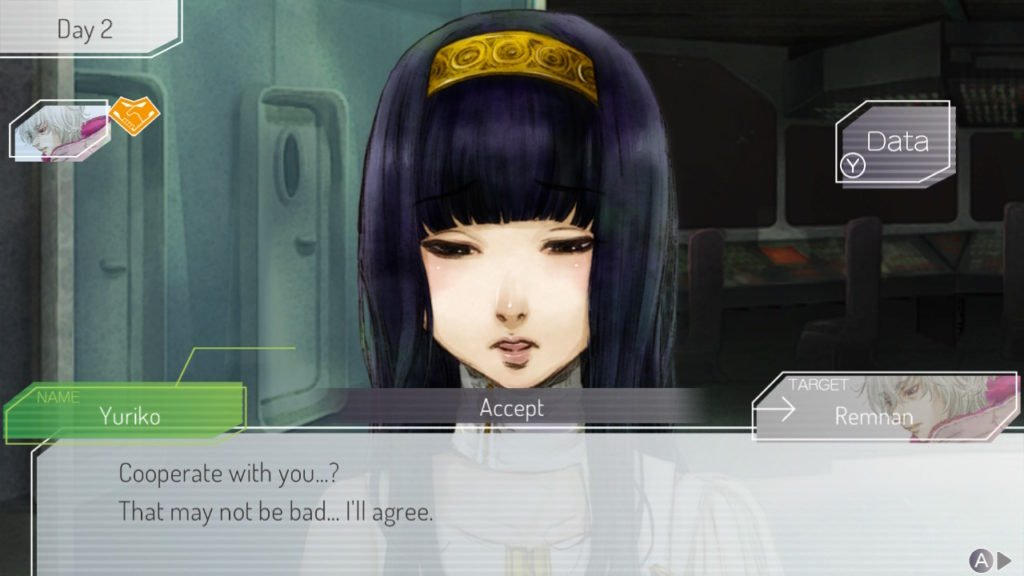
For the first few loops, you’re pretty much ferried along a set path. There are still a couple of outcomes that you can reach, but you’re mainly stuck to what the game wants you to do. During this time, new characters, roles, and other gameplay features are slowly introduced. In fact, this is also one of the few times where Gnosia’s story is at the forefront. You’ll be learning how to deal with discussions from fellow crewmember Setsu, who seems to be involved in the same looping phenomenon.
Gnosia’s characters are a pretty diverse bunch, coming from different planets and walks of life, with their characteristics being somewhat represented in the actual rounds of discussions. Raqio, a smart but often disliked crewmember, will often be helpful in figuring out who is Gnosia — if he doesn’t get voted for first. Meanwhile Kukrushka, a young girl who is unable to speak, often manages to avoid cold sleep via liberal use of crocodile tears. Character stats (including yours) determine the effectiveness of certain actions, like their ability to lie or persuade others.
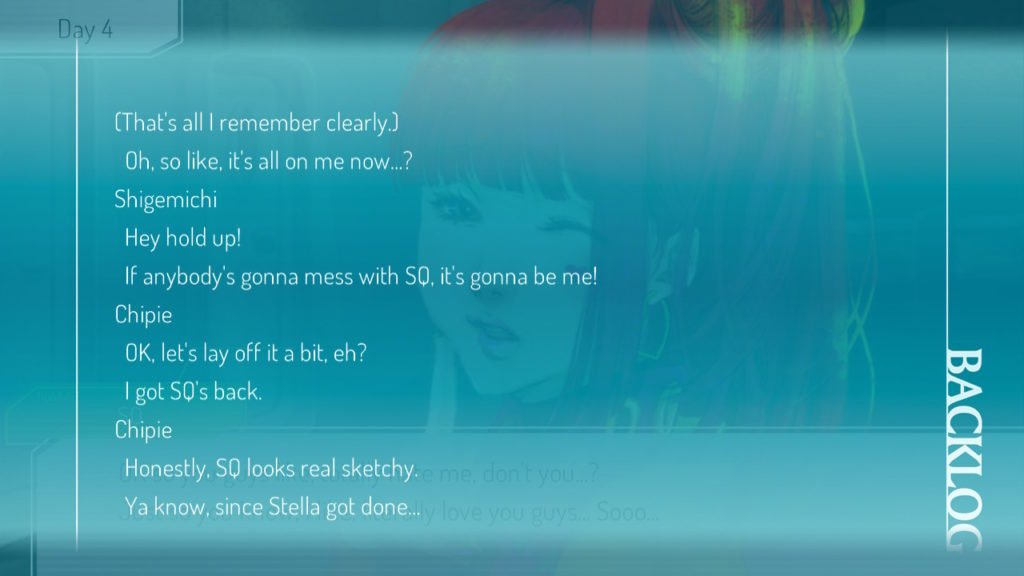
Creating a single player version of Mafia/Werewolf really was ambitious — especially for a small indie team — but in practice, it caused a bunch of problems that made it hard for me to stay engaged. For starters, the actual discussion rounds are incredibly limited in scope, even when you’ve unlocked more commands. Only a few commands end up having any real use, and some of them are pretty much a requirement later on due to how bad the AI can be. They’ll miss obvious Gnosia, randomly vote out someone that was never mentioned during a discussion, or go from trusting to doubting someone in the space of two lines of dialogue.
Furthermore, most conversations are made up of the same stock phrases, repeated over and over again. It makes each character feel robotic, as you learn everything they’re able to say early on. This means that after a decent amount of loops, there’s nothing really new to see during discussions, which only hinders your motivation to complete the 100+ loops required to reach Gnosia’s true ending.
The ratio of discussions to story is also wildly unbalanced. As previously mentioned, you spend far more time during discussion rounds than actually in story scenes. Even talking to characters between each day feels limited, lasting only a minute or two before you go back to voting again. I’d estimate that, between all story and character specific scenes I witnessed, there’s only a handful of hours spent on the game’s cast outside of discussions.
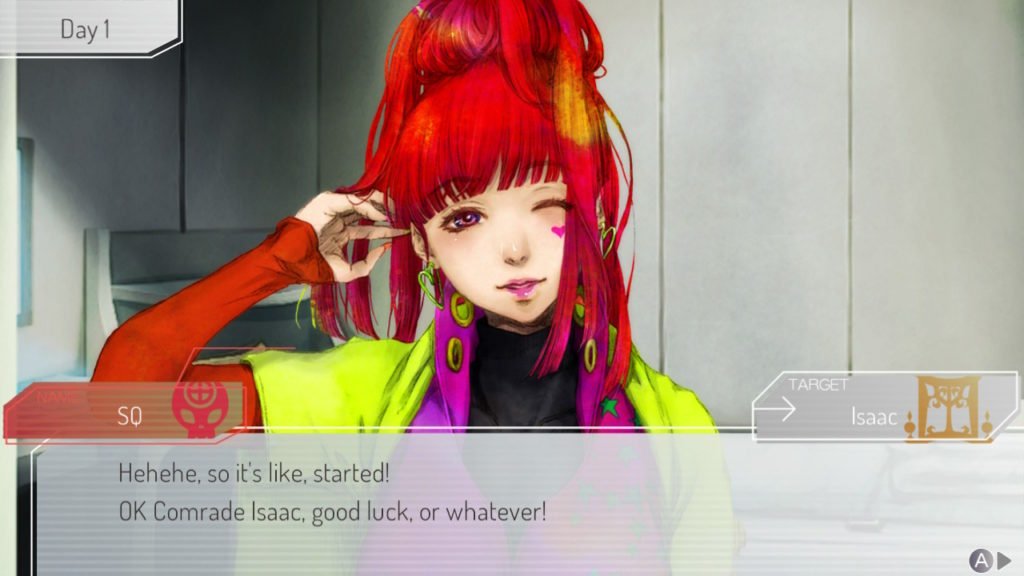
It’s unfortunate, as the story being told is actually not that bad. If this was a relatively short visual novel (say around 10-15 hours), with much more time spent with each crewmember, then I’d probably have a more positive impression overall. Instead, the few hours of story are stretched to breaking point over an unenjoyable amount of discussions and loops. Due to the random nature of some requirements needed to beat the game, some players might have an even worse time than I did. It took me 128 loops to see the ending; If I had go through another 50 more, I don’t think I’d have been able to finish Gnosia.
If there’s one area that I had few faults with, it’s the game’s presentation. Character sprites are fantastic, making Gnosia’s colourful cast stand out even more. A good number of events also have CGs, giving me at least another reason to slog through multiple loops than to just look for another brief story scene. The soundtrack is incredibly memorable too, even if it is rather sparse as a whole. It’s also worth bearing in mind that there’s no voice acting at all. Not an issue for me — and it might be blessing, considering the constant repetition in discussions — but you obviously wont enjoy this if you need characters to be voiced, in Japanese or otherwise.
Conclusion
Gnosia is a game that’s bound to be incredibly divisive. While I found the main gameplay loop uninteresting, fellow writer Lilia left with a far more positive impression. At the very least, I can appreciate the attempt at creating something fresh, even if I didn’t think it worked in the end. If another game of this style was released with improved gameplay, then I’d still be willing to try it out. It absolutely has potential — potential that I feel Gnosia just couldn’t realise.
Join The Discussion
Rice Digital Discord
Rice Digital Twitter
Rice Digital Facebook
Or write us a letter for the Rice Digital Friday Letters Page by clicking here!
Disclosure: Some links in this article may be affiliate links, which means we may earn a small commission if you make a purchase after clicking on them. This is at no additional cost to you and helps support Rice Digital!
- Class of Heroes: Anniversary Edition Beginner’s Guide - April 25, 2024
- Farming sim SunnySide gets updated demo ahead of launch - April 24, 2024
- Metaphor: ReFantazio releasing October 2024, new gameplay revealed - April 24, 2024




